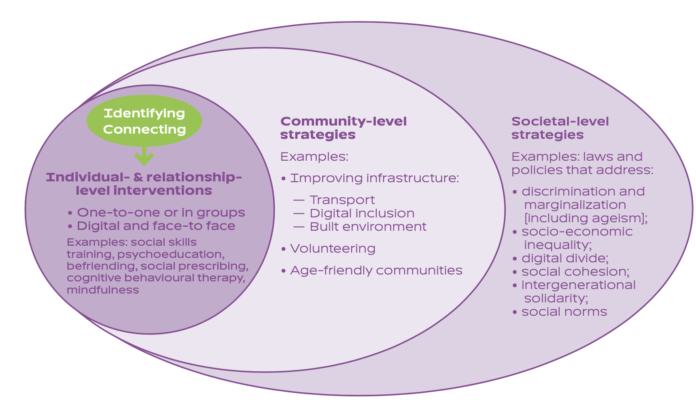By: Christopher Mikton, Technical Officer, the World Health Organisation, Geneva
Launched by WHO on the International Day of Friendship, a new advocacy brief highlights that social isolation and loneliness among older people are widespread globally. The COVID-19 pandemic and the resultant physical distancing measures have exacerbated these conditions. The brief notes that The UN Decade of Healthy Ageing 2021–2030 presents a major opportunity for the World Health Organization (WHO) and other United Nations agencies to address social isolation and loneliness in a more sustained way. Studies suggest that 20-34% of older people in many parts of the world – including China, India, the United States, and Europe – are lonely and that rates in institutions are even higher. Social isolation and loneliness shorten older people’s lives and damage their mental and physical health and quality of life. Physical health consequences include conditions such as cardiovascular disease and stroke and mental health consequences include conditions such as cognitive decline, dementia, depression, anxiety, suicidal ideation, and suicide. In addition, social isolation and loneliness impose a heavy financial burden on societies.
The evidence base for interventions to reduce social isolation and loneliness among older people is still uneven, with many mixed and inconclusive findings. The advocacy brief identifies seven opportunities for improving data and research and strengthening the evidence base for what works Nonetheless, the following interventions seem to hold promise.
- those aimed at individuals delivered either face-to-face or digitally, such as social skills training, peer-support and social activity groups, “befriending” services, and cognitive behavioural therapy;
- those aimed at communities, such as improving transportation, the built environment, and digital inclusion; and,
- those aimed at wider society, such as increasing social cohesion and reducing marginalization.
Produced by WHO, International Telecommunication Union, UN Women, and the UN Department of Economic and Social Affairs, the advocacy brief proposes a three-point strategy for addressing social isolation and loneliness during the UN Decade of Healthy Ageing 2021 – 2030:
- Create a global coalition to increase the political priority of social isolation and loneliness;
- Improve research and strengthen the evidence for effective interventions; and
- Implement and scale up effective interventions.
Please click here to read the full brief and other materials.
9789240030749-eng

